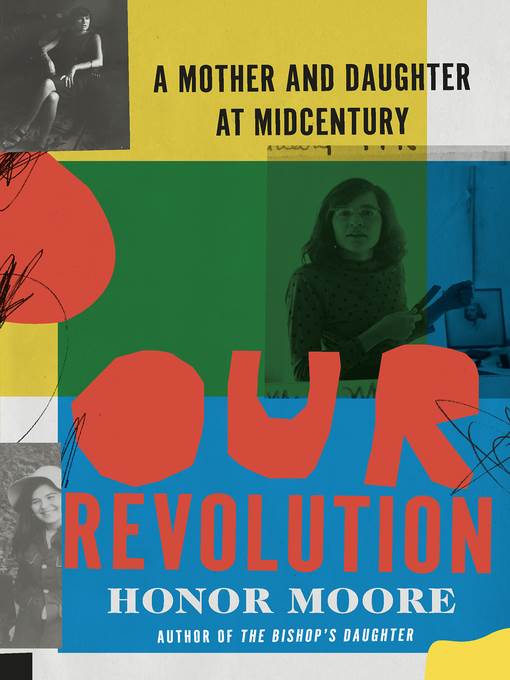
Our Revolution
A Mother and Daughter at Midcentury
کتاب های مرتبط
- اطلاعات
- نقد و بررسی
- دیدگاه کاربران
نقد و بررسی

Starred review from December 1, 2019
A sharp portrait of two women who struggled to shape their lives as their world changed. Poet Moore (The Bishop's Daughter, 2008, etc.), who has written perceptive, revelatory biographies of her father, Bishop Paul Moore, and maternal grandmother, painter Margarett Sargent, now focuses her attention on her mother, Jenny McKean (1923-1973). Based in part on an unfinished memoir that Jenny bequeathed to her, Moore also draws on letters, scrapbooks, and abundant interviews with family, Jenny's many friends, and lovers to create a sensitive portrait of a complex, contradictory woman. Born into great wealth, Jenny greatly enjoyed the "dinners and dances" of her debutante year, at the same time feeling stimulated by what she was learning at Vassar: comparative anthropology, for example, where, for the first time, she studied race, "an issue that would gather force and meaning for her and inform her moral and political thinking for the rest of her life." So did her marriage to Paul, also born into wealth, who had decided to become a priest. For both, the church offered a sense of meaning and mission. Jenny defied "the limitations of her role as a clergy wife," becoming an active partner in the couple's work in the slums of Jersey City, where they lived in near poverty and, influenced by the Christian radical Dorothy Day, threw themselves "into a life of service, away from the spiritual emptiness and lack of community in which they had grown up." Honor, the oldest of their nine children, competed for her mother's attention not only with her siblings, but also with her mother's consuming social and political engagement; as she grew up, Jenny desired to extricate herself from her roles as wife and mother and forge a new identity. By 1970, with women's liberation bursting into American culture, both the author and her mother "began to stumble toward new terms of engagement--as free women." For each of them, the stumbling exposed emotional wounds, and for Moore, the discovery of her mother's gift to her: "a kind of force within that never allows me to stay still." A deeply insightful, empathetic family history.
COPYRIGHT(2019) Kirkus Reviews, ALL RIGHTS RESERVED.

December 9, 2019
Poet and playwright Moore (The Bishop’s Daughter) pays tribute to her mother, Jenny, a social activist and writer who died from cancer in 1973 at age 50, in a touching but overlong memoir. Throughout, she examines Jenny’s emotionally turbulent life and strained marriage to Paul Moore Jr., a prominent bishop of the Episcopal Church, and explores the mother-daughter bond. Moore uses excerpts from her mother’s private papers to tell the story: “It was time to pull the pages of her writing from their cartons,” she says. “It was time to get to know my mother.” The narrative spans WWII, the postwar boom years, and the civil rights and women’s liberation movements, and covers Jenny’s domestic and professional lives and the births of her nine children; Paul’s religious career and the couple’s efforts to establish a diverse church; and Jenny’s late-in-life quest for independence after she became aware of Paul’s bisexuality (her mother never did “reveal those suspicions to any of her children.... I consider her heroic”). Moore writes about trying to get close to her busy mother, and speculates about why she had so many kids (“motherhood was an arena in which to excel as a competitor”). This is a languid document, at time overstuffed with detail, but one that nevertheless offers a poignant look at the complexities of motherhood and womanhood.

December 1, 2019
Moore (The White Blackbird) takes on the ambitious task of distilling not just one life but two. The author recounts her mother's life and her own, especially amid social change movements of the 1960s. Moore represents a white family of considerable privilege, a fact that is acknowledged in the text but still limits the perspective. Moore shares intimate glimpses of her family life and coming-of-age story, beautifully integrating excerpts from her mother's writing among her own recollections and research. However, perhaps because it seeks to cover too much territory, the book sometimes struggles to remain engaging and at times gets bogged down by details. Overall, readers will catch the spirit of the story, but without a clear sense of the book's purpose and what comes next. VERDICT Moore offers a rich exploration of an individual whose life and family were dramatically altered by second-wave feminism. However, the account struggles with the dual tasks of being both biography and memoir and takes on more than it can satisfyingly deliver.--Sarah Schroeder, Univ. of Washington Bothell
Copyright 2019 Library Journal, LLC Used with permission.

October 1, 2019
Distinguished poet Moore wrote about her father, Bishop Paul Moore, in the National Book Critics Circle Award finalist The Bishop's Daughter. Here she writes about her mother, Jenny, who defied her classy Boston family by going to college and eventually marrying her war hero beloved and becoming actively involved in his progressive ministry. She was diagnosed with cancer at age 50, regretting that she would lose out on the opportunity to join the feminist fight.
Copyright 2019 Library Journal, LLC Used with permission.

























دیدگاه کاربران